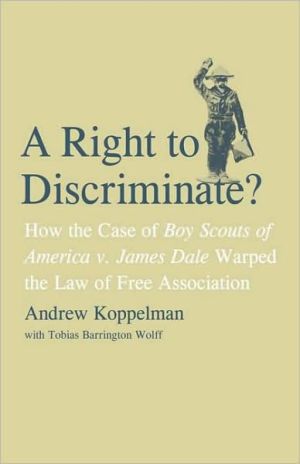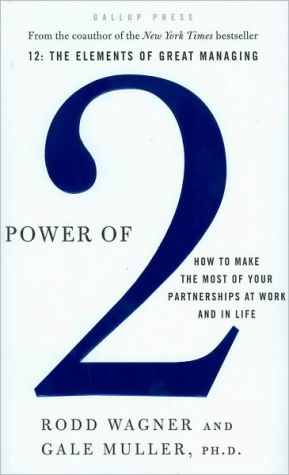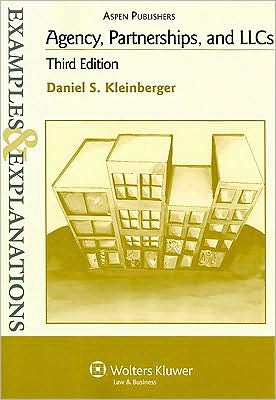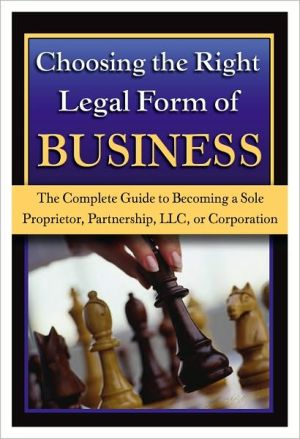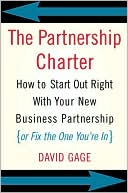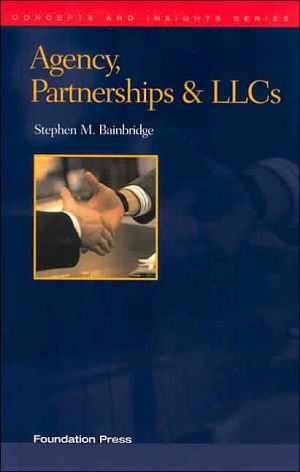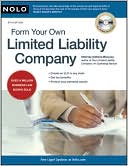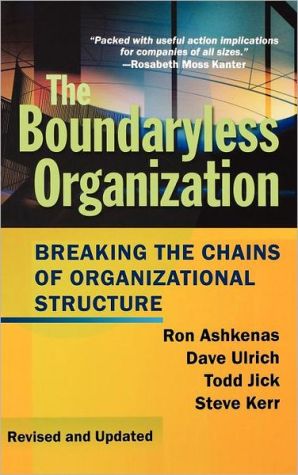A Right to Discriminate?: How the Case of Boy Scouts of America v. James Dale Warped the Law of Free Association
Should the Boy Scouts of America and other noncommercial associations have a right to discriminate when selecting their members?\ Does the state have a legitimate interest in regulating the membership practices of private associations? These questions— raised by Boy Scouts of America v. Dale, in which the Supreme Court ruled that the Scouts had a right to expel gay members— are at the core of this provocative book, an in-depth exploration of the tension between freedom of association and...
Search in google:
Should the Boy Scouts of America and other noncommercial associations have a right to discriminate when selecting their members?Does the state have a legitimate interest in regulating the membership practices of private associations? These questions-- raised by Boy Scouts of America v. Dale, in which the Supreme Court ruled that the Scouts had a right to expel gay members-- are at the core of this provocative book, an in-depth exploration of the tension between freedom of association and antidiscrimination law. The book demonstrates that the “right” to discriminate has a long and unpleasant history. Andrew Koppelman and Tobias Wolff bring together legal history, constitutional theory, and political philosophy to analyze how the law ought to deal with discriminatory private organizations. Library Journal Koppelman (law & political science, Northwestern Univ. Sch. of Law) and Wolff (law, Univ. of Pennsylvania Law Sch.) here analyze the effect of a seminal 2000 Supreme Court discrimination case. Citing rights granted in the Constitution's guarantee of freedom of association, the Boy Scouts of America expelled plaintiff Dale owing to his sexual orientation. Dale sued under New Jersey's antidiscrimination law. The lower court reasoned that Dale's membership in the Boy Scouts did not violate the organization's freedom of expression because his objective was merely associative and did not infringe on the intentions of other members, but the U.S. Supreme Court reversed the opinion in a 5-4 decision that saw the Boy Scouts' own expressive nature as violated by Dale's association with it. The authors conclude that such reasoning would effectively overturn any antidiscrimination law, arguing that an overly broad interpretation of the First Amendment's protection of the freedom of expression could suppress the amendment's guarantee of freedom of association. VERDICT Of interest to those who pay close attention to the high court and to all students of constitutional law.—Philip Y. Blue, NY State Supreme Court Criminal Branch Law Lib., First Judicial Dist., New York
\ Library JournalKoppelman (law & political science, Northwestern Univ. Sch. of Law) and Wolff (law, Univ. of Pennsylvania Law Sch.) here analyze the effect of a seminal 2000 Supreme Court discrimination case. Citing rights granted in the Constitution's guarantee of freedom of association, the Boy Scouts of America expelled plaintiff Dale owing to his sexual orientation. Dale sued under New Jersey's antidiscrimination law. The lower court reasoned that Dale's membership in the Boy Scouts did not violate the organization's freedom of expression because his objective was merely associative and did not infringe on the intentions of other members, but the U.S. Supreme Court reversed the opinion in a 5-4 decision that saw the Boy Scouts' own expressive nature as violated by Dale's association with it. The authors conclude that such reasoning would effectively overturn any antidiscrimination law, arguing that an overly broad interpretation of the First Amendment's protection of the freedom of expression could suppress the amendment's guarantee of freedom of association. VERDICT Of interest to those who pay close attention to the high court and to all students of constitutional law.—Philip Y. Blue, NY State Supreme Court Criminal Branch Law Lib., First Judicial Dist., New York\ \
